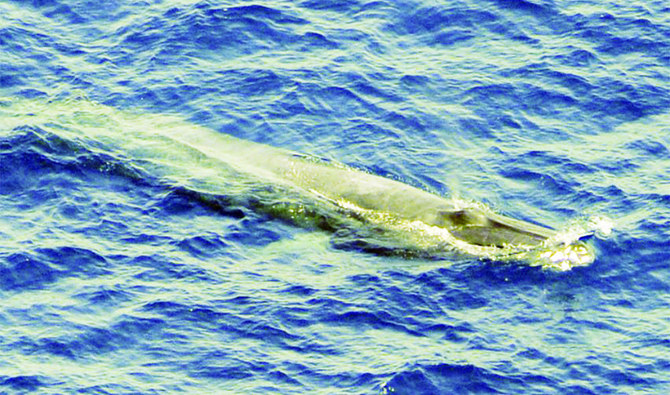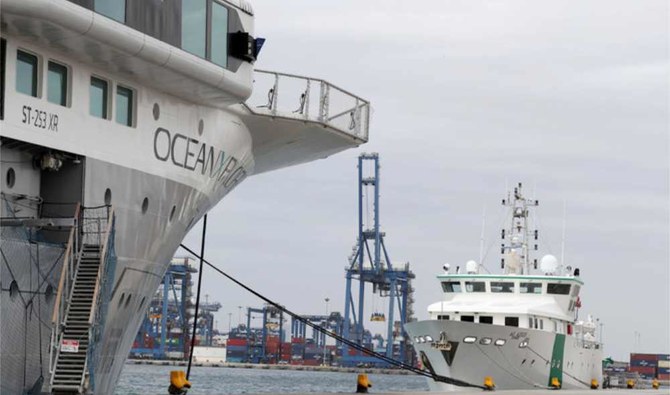JEDDAH: The National Center for Wildlife announced on Saturday that five rare whales have been spotted on the Red Sea shores near Al-Qunfudah, located in the Tihamah region, Makkah province.
The observation and documentation of these whales is part of the Red Sea Decade Expedition, a 19-week exploration trip that has brought together 126 researchers to carry out scientific research activities and study marine life.
The NCW tweeted: “A Bryde’s whale (Balaenoptera edeni brydei) breathing about 60km off the shores of Al-Qunfidah. These whales are very rare in the Red Sea. Five whales were documented during #RSDE.”
RSDE is being carried out in cooperation with NEOM, Amaala Project, King Fahd University of Petroleum and Minerals, King Abdulaziz University and King Abdullah University of Science and Technology.
Dr. Mohammed Ali Qurban, CEO of the NCW, explained that the trip aims to present a clear vision of the Red Sea environment, studying mammal species, biodiversity and environmental characteristics including the physical and chemical ones. The trip will also present the biomass of coral reefs, seagrass, sea turtles, and other creatures that abound in the Red Sea.
The trip will provide the first comprehensive survey of previously unstudied areas in the entire expanse of the Red Sea and the Gulf of Aqaba in the north. It also promises to produce professional documentaries and informative materials on different Red Sea areas.
Bryde’s whales are very rare in the Red Sea due to the fact that they remain in tropical and temperate waters throughout the year. They are usually confused with sei whales as they share many morphological similarities.
Bryde’s whales are a group of whales that include the balaenoptera brydei, the largest form found worldwide in warm temperate regions and tropical waters, and the smaller Balaenoptera edeni brydei, which is restricted to the Indo-Pacific.
Earlier this month NCW revealed some of the rare species found during the RSDE discovery journey, including the whale shark, Ryncodon Typus, one of the largest creatures in the Red Sea, with a length of 10 meters.
Another is the dugong, an endangered marine mammal. There are thought to be about 2,000 left in the Red Sea, and RSDE surveys will help in finding out how accurate that number is.
































